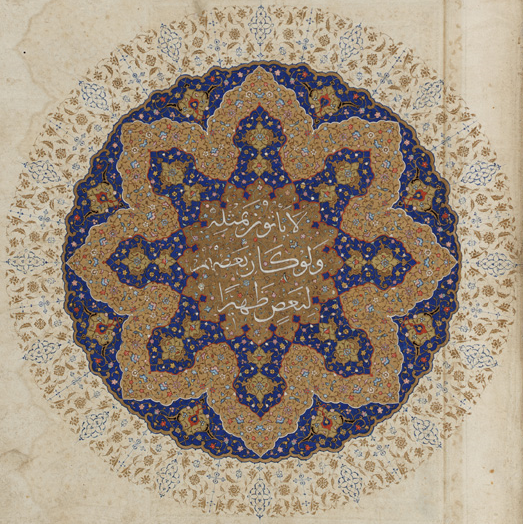This is an installment of the Religious Fundamentalism and Sexuality Project. You can read the full list of questions here and the posting plan here. The first six participants whose stories I’ll be posting are Melissa and Haley, Lina and V, Latebloomer and Katy-Anne.
Sex Education and the Body
- How familiar and comfortable were you in your own body? Did beliefs about purity, modesty, abstinence, etc. affect your attitude toward your body? Did those beliefs either reinforce or conflict with the messages you received from society in general?
Melissa and Haley
Melissa:
In the early years of my life I felt strong and confident in my body. After my family started enforcing the modesty rules of patriarchy, I became more uneasy. I felt fat, and tried many different diets hoping that I would lose weight and be more attractive. I was very self-concious of my C-cup breasts (and the temptation they could give men) and wore high necked tops and vests to try and disguise my figure. I felt that my worth was strongly tied to my physical body being fertile and able to produce children someday. I took purity very seriously, and refused to hug males or even be in a room alone with them. I remember feeling somewhat violated whenever a male shook hands with me, because I wondered if he was just using the handshake as an excuse to touch me, but I didn’t know how I could decline shaking hands without being very impolite.
I was not very familiar with my body. I was given a basic sex talk at the age of 11 prior to my 5th siblings birth, so I knew that I had ovaries, a uterus and a vagina that babies could come out of. I did not know the names of any of the other parts, or how they functioned. I remember worrying that tampons could take my virginity (or travel through the cervix into my uterus!) and although I figured out how to masturbate I had no idea what an orgasm or clitoris was. I don’t remember being exposed to hardly any messages from society at large. We rarely went out, we had no TV, contemporary music was not allowed, my reading was mostly censored and I had no friends. I did have a few arguments with one set of granparents who would ask if I was planning on going to college and tried to make the point that there was more to me than just my babymaking/homemaking abilities. I felt like they were wrong, and that they were just trying to distract me from my true god-ordained calling.
Haley:
As a transgender person, growing up my body felt highly dissonant to me. On my most basic conscious level my brain seemed to expect a female body when I opened my eyes each morning and then was highly distressed to not find a body traditionally defined as female. Growing up within conservative Protestantism, homosexuality and transsexuality were extremely frowned on. I regularly heard extremely hurtful things about LGBT people and I felt that I must be wrong for feeling the way that I did. I internalized a great deal of self hatred for being “depraved.”
Lina and V
Lina:
I was the unfortunately early-developing child, in a bra and with a period at age eleven. I was a part of the girls’ “Purity class” taught by my youth pastor’s wife (her husband taught the corresponding boys’ “Lust Busters”) and certainly internalized much of the message. It was difficult to sort through the conflicting ideas of my body being special, yet dangerous; it clearly was wanted by the random men in cars who would honk/yell if I walked anywhere, which gave me a bit of a high, even though I knew they were “bad.” Also, I got really, really tired of trying to find camisoles all the time, since every shirt was somehow too low.
V:
If it’s possible, I would say that I was very comfortable in my own body, but not familiar with it at all. As a dancer, I was highly familiar with my movements, what muscles allowed me to perform certain moves, and how my body looked sheathed in a leotard. But I knew nothing about what was under my clothing.
I had no idea I would grow up to be a feminist, so I struggled with my desire to wear whatever I wanted, but knowing I had a “duty” to dress modestly to not lead my brothers in Christ astray.
Abstinence acted as a wonderful barrier for me. I had no desire for sex in early/middle high school. I had no idea how my friends (I went to public school), some of whom were Christian, could be having sex. Didn’t they know it was wrong? How could they not control their desire? It was extremely easy for me, and I believed that that was because I had asked God to keep me pure until marriage.
Latebloomer:
I was absolutely miserable in my own body in my teens and early twenties, until I started getting out of the mindset of fundamentalism and Christian Patriarchy. I wore very ill-fitting clothing, often homemade, in order to be more modest, and avoided bothering with hair and makeup so that I wouldn’t be vain. As a result, I felt hideously ugly and had absolutely no self-esteem. I covered up my jealousy of attractive and flirty girls by believing them to be slutty and less spiritual than me, but in reality I was severely depressed about my appearance. Paradoxically, I somehow managed at the same time to feel paralyzed with fear that I might be making men stumble; I had to be hyper-aware of my body in order to keep others from being aware of it.
Katy-Anne:
I was sexually abused a young age and was told it was my fault because of what I was wearing and when it was found out, nobody did anything about it even though I wanted the perpetrator prosecuted. Sexual abuse issues aside, I thought I was trash and I hated myself. I battled anorexia, and I also cut myself. One of the things that was unacceptable to my family was to be fat, and their definition of fat was chunky, not necessarily fat. I was always teased by my family about my looks and I took it to heart so I was always insecure. To this day I still battle insecurity and I’m 27! I received conflicting messages because there were people who tried to teach me self-esteem and to be secure but when I got home my parents would tell me that that thinking was psychology and that psychology is wrong and that there is no use for it.
My parents were different in that they tried to educate us some about sex. They did of course teach purity and abstinence, but didn’t teach purity to the extent that so many fundamentalist churches do. For instance, my dad had no problems with me holding hands, cuddling, touching, or kissing my boyfriend. But he did want me to refrain from sex until marriage. The church, however, taught courtship, so I was stuck in between.











